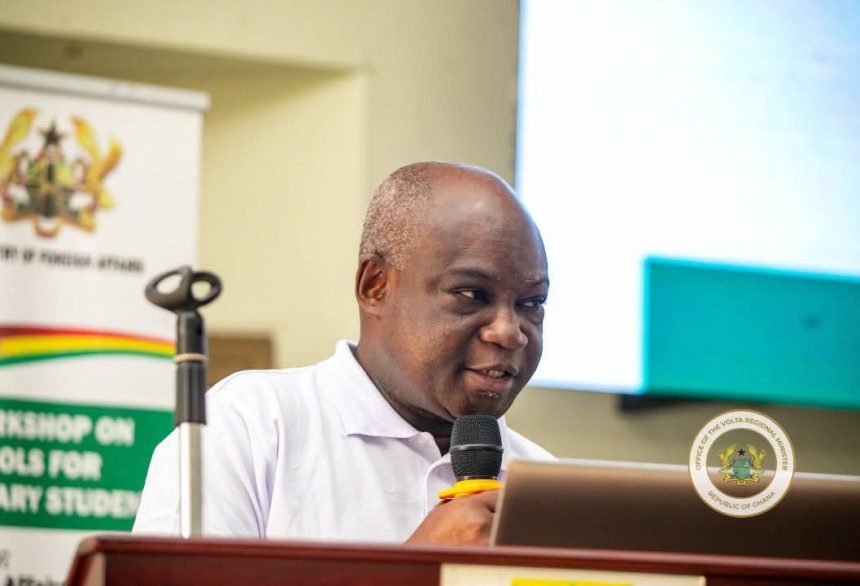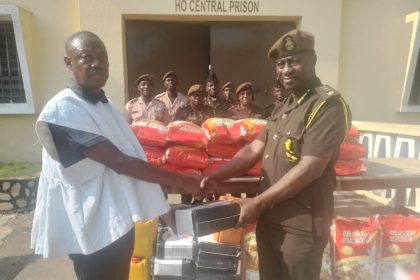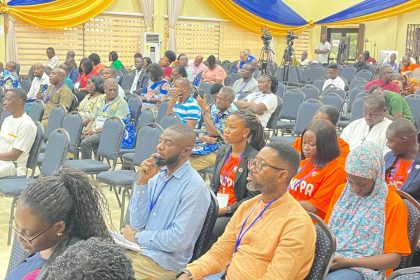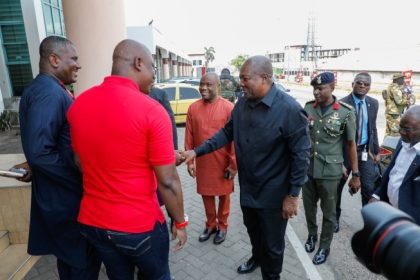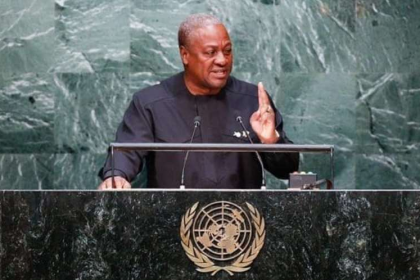Ambassador Francis Danti Kotia, the Coordinating Director for Multilateral and International Organisations at the Ministry of Foreign Affairs and Regional Integration, has underscored the crucial role of young people.
This in advancing regional integration and development within the Economic Community of West African States (ECOWAS).
He was speaking at a Regional Sensitisation Workshop on ECOWAS Protocols for secondary and tertiary students in the Volta Region, organised through the ECOWAS National Office as part of the Ministry’s public education mandate.
Ambassador Kotia said ECOWAS represents a shared aspiration for unity, progress, and prosperity across West Africa. Since its establishment in 1975, the regional body has served as a cornerstone for economic cooperation, peace, and social development among member states.
He stressed that the youth remain central too ECOWAS’s long-term vision, noting that the organisation provides a range of opportunities in education, cultural exchange, scholarships, internships, and cross-border collaboration, all designed to empower the next generation of leaders.
“ECOWAS is not merely an institution; it is a community of people committed to breaking barriers and building bridges. It envisions a borderless region where Ghanaian students can collaborate with peers in Nigeria, Senegal or Sierra Leone to find African solutions to African challenges,” he said.
Touching on the recent withdrawal of Burkina Faso, Mali, and Niger which have since formed the Alliance of Sahel States (AES), Ambassador Kotia acknowledged that their exit poses challenges but reaffirmed Ghana’s commitment to the principles of peace, democracy, and good governance within ECOWAS.
He cited the implementation of the ECOWAS National Biometric Identity Card (Ghana Card), the ECOWAS passport, and protocols on free movement, residence, and establishment as tangible benefits that continue to expand opportunities for trade, education, and regional mobility.
Addressing students directly, Ambassador Kotia encouraged them to take active roles in shaping the continent’s future.
“You are not too young to shape the destiny of West Africa. Your creativity, innovation, and digital skills are key to building a stronger and more united region,” he said, urging them to leverage technology, embrace cross-border collaboration, and promote peace and tolerance.
The Volta Regional Minister, Mr. James Gunu, in his remarks, commended the Ministry for selecting the region to host the workshop, describing the initiative as timely and strategic.
He said the Volta Region, given its geographic position as a gateway to Ghana’s neighbouring countries, plays a vital role in advancing ECOWAS protocols on free movement and regional trade.
“The success of ECOWAS protocols and programmes depends largely on public understanding, especially among young people who must appreciate the benefits of economic integration and regional cooperation,” he stated.
Mr. Gunu noted that youth engagement is not only symbolic but strategic, as today’s students represent the future innovators, diplomats, and entrepreneurs who will drive the ECOWAS vision forward.
He reaffirmed Ghana’s commitment, under the leadership of President John Dramani Mahama, to promoting sub-regional development through economic diplomacy, cross-border trade, and infrastructure projects aligned with the African Continental Free Trade Area (AfCFTA).
The Minister further expressed optimism that ongoing diplomatic efforts would pave the way for Burkina Faso, Mali, and Niger to return to the ECOWAS fold in the interest of regional peace and unity.
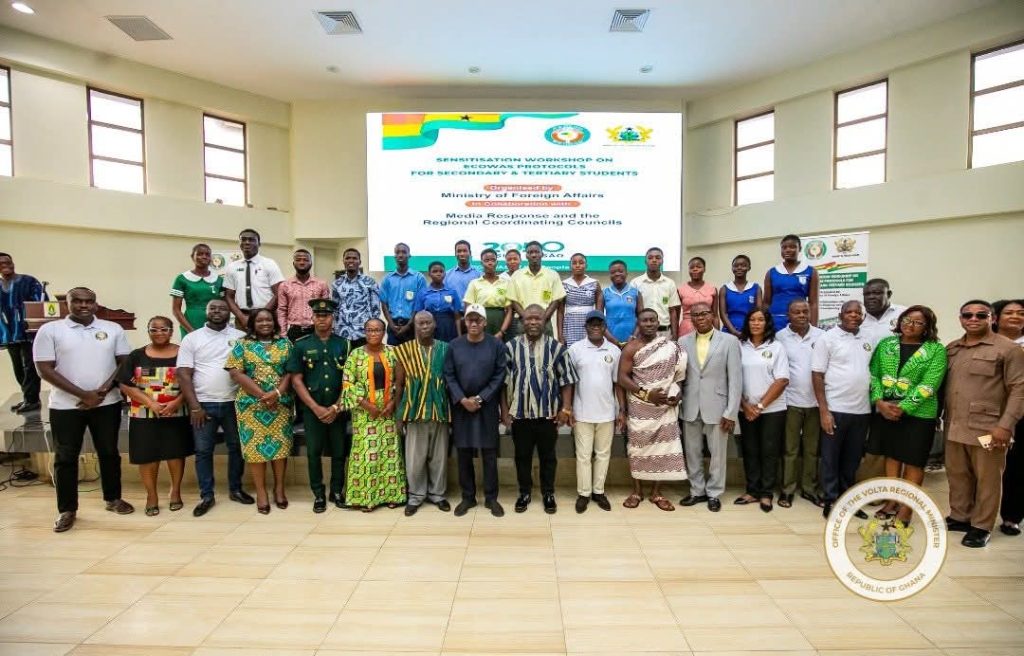
Mr. Gunu also pledged the continued support of the Volta Regional Coordinating Council (VRCC) for initiatives that promote integration, peace, and inclusive development across the sub-region.
The workshop brought together students from secondary and tertiary institutions, officials from Ministries, Departments and Agencies (MDAs), and representatives of civil society organisations.
Participants explored ECOWAS protocols and discussed ways to strengthen youth awareness and participation in regional integration at the community level.
GNA


